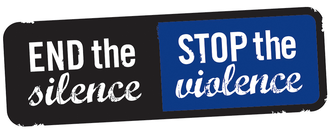-
Māori self-determination for HealthPlease refer to our video documenting delivery of this petition here: https://www.youtube.com/watch?v=_662YzLuZMA&feature=emb_logo At this time of the covid virus we can be especially thankful that our publicly funded health system in Aotearoa New Zealand is among the best in the world. However the health system doesn't work the same for everyone. Māori whānau and communities are treated unfairly in the current model and experience severe and persistent health inequities. A fair society means everyone participates in enhancing our social, economic and educational activities, which builds collective confidence and safety. We all benefit in a fair society that is more prosperous and harmonious. https://youtu.be/sFlM5B008Ts More Videos: https://www.youtube.com/channel/UC2v0dLjHVJL1UqCe7T-n3WQ Māori kids and adults visit a health professional the same as or more than non-Māori. Yet the outcomes across the population are different. For example, Māori women are dying at two times the rate as non-Māori from breast cancer, four times in cervical cancer and five times more in lung cancer. The recommendation of 10 of 12 health experts who were tasked with a two year investigation of unfairness in our health system and how to address this, concluded a Māori Health Authority with commissioning rights was the best approach. This means an Authority that will have the autonomy to control, make decisions, and determine how to spend health dollars most appropriately for Māori. In order to provide the same high outcome for everyone our health system needs to be informed by Māori needs and Māori decision making. Māori must be able to enact rangatiratanga (self determination) to best meet the needs of their own communities. Such an approach will result in diverse options for everyone. For example, a Mātauranga Māori commissioning frame recognises the inseparability of health, education, environment, income, and civic responsibilities. This world-leading approach honours Te Tiriti o Waitangi which lays out terms of settlement. Te Tiriti is how we achieve a society where improved health is protected for every person, whānau, and social group regardless of social advantage and disadvantage. Though the government has accepted the creation of a Māori Health Authority, they rejected commissioning rights for the Authority. Without commissioning rights, the Māori Health Authority is subordinate to the Crown's representative, the Ministry of Health. Add your name today to call on our government to give Māori commissioning to the Māori Health Authority and ensure equal health outcomes for everyone in Aotearoa. **** References The New Zealand Health and Disability System Review https://systemreview.health.govt.nz/ "We have now some quite good evidence that racism at a range of levels does determine access, experience and outcomes in the healthcare system." Dr Ashley Blomfield, to the Waitangi Tribunal in 2018 Racist health system no cure for sick Māori, July 2019 https://www.stuff.co.nz/national/health/113917099/racist-health-system-no-cure-for-sick-maori 'We have totally failed': Rheumatic fever: The Third World disease entrenched in New Zealand, Aug 2020 https://www.stuff.co.nz/national/health/122260447/we-have-totally-failed-rheumatic-fever-the-third-world-disease-entrenched-in-new-zealand National Urban Māori Authority calls for Māori self-determination in health https://www.stuff.co.nz/auckland/300036653/national-urban-mori-authority-calls-for-mori-selfdetermination-in-health Māori should have a stand-alone health system https://www.facebook.com/TeAoMaoriNews/videos/3592536994197158 Public Health Association calls for the Minister of Health to intervene and support the Māori Health Authority alternative commissioning framework https://www.nzdoctor.co.nz/article/undoctored/public-health-association-calls-minister-health-intervene-and-support-maori1,688 of 2,000 SignaturesCreated by Emily Gill
-
Youth Justice Demerit Points Bill Fails Young People: Ask the Select Committee to reject it!To the Social Services and Community Committee We ask that you reject the Oranga Tamariki (Youth Justice Demerit Points) Amendment Bill. This Bill, though well intentioned, fails to understand and respond to the complex and layered challenges facing our rangatahi. At the heart of this bill lies a lack of understanding of the drivers behind youth offending, and the sort of interventions needed to support rangatahi to thrive. According to the Youth Offenders summary report in 2019, of those referred to a FGC, 94% of kids 11-13, and 81% of young people aged 14-17 had been the subject of a report of concern to Oranga Tamariki relating to their care and protection. This data highlighted "that young people who offend often have complex problems, which can be among the underlying causes of their offending." If you speak with Youth Development Workers, or Social Workers supporting these rangatahi and whanau, they will testify to the reality that a large proportion of rangatahi who end up reoffending are often victims of abuse, with a history of poverty, mental illness, housing instability, intellectual disability, and severe trauma. They are also predominantly Maori, facing regular, and constant discrimination. The Youth Justice Demerit Points bill fails to provide an answer to these very real and significant issues that lie at the root of youth offending. Another failure of the Bill is its assumption that our inability to support rangatahi early enough is a failure of identification. However, if you once again were to speak to Youth Development Workers, Social Workers, and other community workers who are serving and supporting our whānau and rangatahi, they will tell you that identifying rangatahi at risk of reoffending is not the problem. Our communities know who these young people are. The issue lies in the lack of resources and supports available for young people within our community. The idea of using demerit points to characterise young people, is also out of step with the Government's own Youth Development Strategy Aotearoa (YDSA). The YDSA commits the Government to thinking about, and walking alongside young people utilizing a Strength Based approach. The YDSA outlines that any additional support designed for young people "needs to be consistent with the youth development approach - that is, it needs to avoid defining the young person as 'the problem'." The Youth Justice Demerit Points Bill is out of step with the YDSA. It fails to approach our young people in a strength based manner, and it contributes to further stigmatizing and marginalizing young people. We are also concerned about the negative impact labeling our young people with Demerit Points will have on their overall mental and emotional well-being. Instead of passing a bill that will have very little direct impact on reducing the risk of a young person re-offending, we ask that Parliament turns its focus to: ★ Reviewing the Family Group Conferences (FGC) system: Audit the FGC system and provide the necessary resource and support needed to ensure that it is functioning in a manner consistent with the principals of Restorative Justice and Youth Development. ★ Focus on Early Intervention: Provide local communities with resourced and dedicated support so that they can meet the needs of the young people in their communities who are struggling and at-risk. ★ Develop a Strategy to address the Youth Homelessness crisis: We know that when young people experience homelessness they are more likely to offend as a matter of survival. A Youth Specific Homelessness Strategy would address the factors that lie at the root of youth offending. Child poverty, mental illness, disability, unstable and inadequate housing, trauma, discrimination and racism are all factors that would be addressed. Young people living in stable housing, with their mental, emotional, spiritual and physical well-being taken care of, are less likely to become involved in the Youth Justice System. ★ Provide each young person entering the Justice System with a trained Youth Development Worker: A service designed in consultation with the Youth Development Sector, with a specific focus on supporting rangatahi who enter the Youth Justice system, would be one way to provide early intervention to rangatahi as soon as they enter the system. If each rangatahi had a dedicated Youth Development Worker, their needs could be assessed immediately, and they would than be able to be connected to the right supports before they become entrapped within the system. The Oranga Tamariki (Youth Justice Demerit Points) Amendment Bill fails to understand or acknowledge the driving factors behind youth offending, and thus it fails to adequately respond. For this reason, the Bill should fail. You can read more about our concerns with the Bill here: https://whenlambsaresilent.wordpress.com/2020/07/30/will-demerit-points-stop-youth-offending-a-j-hendry/ You can find the bill here: http://www.legislation.govt.nz/bill/member/2020/0229/latest/whole.html#LMS323852411 of 500 SignaturesCreated by Aaron Hendry
-
Huarahi Māori o Te AwakairangiHuarahi Māori o Te Awakairangi is a social action campaign started by six Year 13 students at Wainuiomata High School. We strongly believe that colonial street names are controversial and not reflective of our communities. We have conducted some research and found that less than 22% of the street names in Te Awakairangi are Māori. With the support of our community, we want to have meaningful street names which reflect our culture. We must keep our culture alive and not celebrate those who have stripped that from Māori. For example, the two Wakefield brothers ended up in prison for three years for abducting a 15 year old girl. Here in Aotearoa William Wakefield manipulated the lands out of Māori hands and condoned and promoted colonisation of our country. That name does not deserve to be represented on our whenua. "...These are the names we say everyday with ease while ancient names, names with stories, and genealogies tied to this place get erased, replaced, and sometimes butchered beyond recognition..." -Dr Emalani Case (from 'Lost in Wellington') We aim to bring change through our values of manaakitanga and peace. Please sign our petition and help us make this change.588 of 600 SignaturesCreated by Nicole Hawkins
-
Be Courageous: Support the establishment of a Māori WardFamilies and friends of Taranaki invite you to sign this petition to show you care about meaningful and effective Māori/Pākehā partnership in local government in Aotearoa. This is about Aroha. Aroha to direct one’s essence, energy to another person, place or object. Aro to direct Ha our essence, our energy, our breath. In July, New Plymouth District Council’s Elected Members made an impassioned stand for better representation for Māori around our Council table by voting to establish a Māori Ward at the 2022 local elections. These councillors challenged the severely broken legislation that places roadblocks in the way of Māori representation. This demonstration of collective aroha shown by New Plymouth councillors reflects the genuine voice of our community, 180 years after entering into partnership under the Treaty of Waitangi, New Zealanders want to see relationships honoured and friendships with tangata whenua nurtured better. It will only take 2874 signatures for those against the Māori Ward in New Plymouth to succeed in calling a referendum to uphold the racist status quo. Councils nationwide face this same issue. While those against the Māori Ward are gathering momentum to block the establishment of the Ward we can counter the spread of racist ideology through the aroha in this petition. We call on the binding power of aroha to show up and be heard. Aroha is more than just love, it directs our energy, grows that potential and binds us to someone or something. Please sign this petition to show the NPDC and councils nationwide that we support the establishment of a Māori Ward and value on-going work of building relationships with our Māori community! ----- For resources to help us have those prickly conversations with aroha and kindness click here - https://www.facebook.com/kinaconvos (shot Kina Convos!)3,245 of 4,000 SignaturesCreated by Rongomou Community Action ❤✊✌

-
Provide water fountains in all public places“One of the worst days in my dental career was when I had to remove 10 teeth in one surgical procedure from an 18 month-old baby, still in nappies,” says Dr Beaglehole. (Principal dental officer at Nelson Marlborough Health). Lack of access to public drinking fountains and prominent marketing of sugary drinks create an environment where it’s often easier to find somewhere to buy bottled drinks than find a drinking fountain, increasing the consumption of sugary drinks and bottled water and with it increased obesity, dental decay and plastic pollution which is killing our marine life. Its hard to imagine but last year 8,700 children in NZ had to be hospitalised to have their teeth removed, due to dental decay and the main reason is sugary drinks. Sugary drinks are also a big contributor to our high rates of obesity and obesity is a recognised risk factor for severe clinical outcomes of COVID-19, and obese people are nearly 50% more likely to die from Covid 19.* A recently released UNICEF report, found that New Zealand has the second highest obesity rate in the OECD. More than one in three children are overweight or obese, with Pasifika (66.5%) and Māori (48.2%) children facing the highest risk . We are also seeing a rise in Type-2 diabetes in children we huge long term health risks. This could be avoided with better access to free tap water when people are out –by councils putting in more public drinking fountains. Currently there is only one drinking fountain for every 3,135 people and as few as one fountain for every 17,000 people in the worst-affected area. Paying for bottled drinks on the go, when good quality tap water should be readily available free-of-charge via drinking fountains, is an unnecessary expense for Kiwi families, especially with the economic impact of COVID-19 With the recent establishment of Taumata Arowai, the new Crown Entity to regulate water, there is an opportunity for central government to act urgently to make tap water the first and most convenient choice for New Zealanders. “Taumata Arowai’s objectives and functions includes protecting and promoting water-related public health outcomes. So we’re calling on government to act and make drinking fountains compulsory in half of all public parks, sports fields, and playgrounds.” SIGN NOW as we have a unique chance for new legislation to be introduced when the new government comes in. 👎 Councils have neglected to provide access to public drinking fountains where they are needed. 👎 With an average of just one drinking fountain for every 3,303 people and as few as one fountain for every 17,000 people in the worst-affected areas. 👎 As few as one in five children’s playgrounds, and less than one in 10 parks, have water fountains.* 👎👎 Data shows low-income communities often have fewer public drinking fountains per person than more economically affluent areas, reducing choice and affecting Māori and Pasifika health outcomes. ⚠ Kiwis consume up to six times the recommended daily sugar intake, with 25 per cent coming from sugary drinks, one 600ml soft / sports drink contains up to 16 teaspoons of sugar – more than five times the World Health Organisation’s recommended daily intake of sugar for a child, in one hit. ⚠ Contributing to our high rates of obesity, with than one in three children overweight or obese. (UNICEF) ⚠ In 2019, the number one reason why Kiwi kids were admitted to a New Zealand hospital was to have their teeth removed under general anaesthetic. https://www.stuff.co.nz/national/health/111956057/appalling-child-tooth-decay-rates-in-northland-and-auckland ⚠An international team of researchers found that people with obesity who contracted COVID-19 were: • 113% more likely than people of healthy weight to be admitted to hospital, • 74% more likely to require treatment in ICU, and • 48% more likely to die. *https://www.sciencemag.org/news/2020/09/why-covid-19-more-deadly-people-obesity-even-if-theyre-young 👎 Single-use plastic bottles are also a major contributor to plastic pollution on our beaches and waterways, killing our marine and bird life. In Aotearoa, we throw away an estimated 838 million plastic bottles every year - the equivalent of 165 Olympic swimming pools. 👍 Councils are the ones legally responsible for providing clean drinking water and need to increase their level of investment in public drinking fountains. 👍 Improving drinking fountain provision in low-decile areas, on sports grounds, and in parks and children’s playgrounds can help reduce the consumption of bottled drinks and help fight sugar-related health issues and single-use plastic waste. SIGN NOW as we have a unique chance for new legislation to be introduced.377 of 400 SignaturesCreated by Jill Ford
-
End Systemic Racism in New Zealand SchoolsThe education system's purpose should be to nurture and support children, unfortunately this is not the case. Not all children are treated equally in our current system. Countless children have experienced racial abuse in the New Zealand education system, this disturbing problem has persisted for decades with little to no improvement. The effects of racial abuse on children has been well documented in academic literature. The Ministry of Education has been negligent in their response to the problem and have failed to protect vulnerable children from racial abuse. https://www.renews.co.nz/endless-stories-of-racism-in-nz-schools/ Testimonies of racial abuse victims will be included with this petition. Testimonies of racial abuse can be emailed to [email protected] or @ngati_frybread on Instagram. If you sign this petition please also consider to writing your local MP with your thoughts on this kaupapa. https://www.parliament.nz/en/mps-and-electorates/members-of-parliament/ We can make change, ngā mihi!4,969 of 5,000 SignaturesCreated by Ngati Frybread
-
End Teen ViolenceOur aim is to raise awareness, educate children in schools and talk about this issue so that we can provide help for those who have experienced or are going through violence, and hopefully prevent it too. We believe that this issue needs to be talked and normalised in conversations at schools because this issue is prevalent, and is hurting our youth. Violence is rooted from several factors, such as systematic poverty, family issues, experiencing violence at home and many more. Research shows that teen violence is more prevalent in Maori and Pasifika youth. Although the numbers have decreased, the seriousness of the offences still remain high. "...the reduction in offending rates for European and other ethnicities far outstripped young Pasifika and Maori, who dropped by 61% and 59%...Youth offending in the European/other category fell by 74%". [https://www.newshub.co.nz/home/new-zealand/2018/04/youth-crime-rates-decline.html] For many of us it affects us personally where families have lost their children to teen violence190 of 200 SignaturesCreated by End Teen Violence
-
People bereaved by suicide within Aotearoa New Zealand need better supportWe are two students currently in the fourth year of our Social Services Degree, and both of us have lived experience of losing a loved one by suicide. We believe the lack of support for those bereaved by suicide is a social justice issue that needs to be addressed. Caro - "In 2017 I lost my brother Declan Peachey to suicide he was 35 and a father of three children. There was no support. My family and I had to struggle alone. Although the pain will never fully be erased, It was only because I found help through counselling (initiated by me), that I myself have started to heal and move on. Not everyone can afford to receive counseling, and not everyone has the means to find support for themselves". "Killarney- In 2012 I experienced losing someone to suicide for the first time. I lost two friends in high school, then in 2017 I lost one of my best friends and then at the beginning of this year we lost a family member. During this time none of us received any support nor did the families involved. The grief and healing process was something that we had to do alone. Access to supports can be expensive and reaching out can be difficult". Estimates made in the past tell us that for every person who completes suicide, six people within their close circle are impacted or affected greatly. More current literature shows that this is a severe underestimate and the number could be around 18 people affected (Hanschmidt F, Lehnig F, Riedel-Heller SG, Kersting A, 2016). Those Bereaved by Suicide, have much in common with those who lose a loved one to any other death. They suffer the usual symptoms of grief, such as cognitive, emotional and somatic difficulties however, they are also more likely to experience “complicated grief”. Complicated grief entails prolonged grieving, with characteristics such as a yearning for the loved one, pain that stays fresh, avoidance of reminders about their loved one’s passing, anxiety, depression, panic disorder, Post Traumatic Stress Disorder (PTSD), they may have difficulty re-establishing a meaningful life and finally, may contemplate or complete suicide themselves. Not everyone bereaved by suicide might suffer from complicated grief, however, stigmatisation and feelings of guilt, or poor family relations, for example, may exacerbate the chances of them doing so. (Tal Young, I., Iglewicz, A., Glorioso, D., Lanouette, N., Seay, K., Ilapakurti, M., & Zisook, S. 2012; Hanschmidt F, Lehnig F, Riedel-Heller SG, Kersting A. 2016). We believe that the creation of a nationwide support service particularly targeted towards people bereaved by suicide would help to alleviate if not eliminate complicated grief symptoms, prevent possible further suicides, and remove the stigmatisation and marginalisation that those who are bereaved by suicide may face. We believe this goal is achievable because, the Suicide Prevention Office is already in service, and this would be a natural progression and direction for it to take alongside suicide prevention. It would be an opportunity for postvention as well as prevention. References; Ministry of Health. 2019. Every Life Matters - He Tapu te Oranga o ia Tangata: Suicide Prevention Strategy 2019–2029 and Suicide Prevention Action Plan 2019–2024 for Aotearoa New Zealand. Wellington: Ministry of Health. Hanschmidt F, Lehnig F, Riedel-Heller SG, Kersting A (2016) The Stigma of Suicide Survivorship and Related Consequences—A Systematic Review. PLoS ONE 11(9): e0162688. doi:10.1371/journal.pone.0162688 https://journals.plos.org/plosone/article/file?type=printable&id=10.1371/journal.pone.0162688 Beehive.govt.nz (2019) Suicide Prevention Office gets down to work 2019 Press Release RT HON JACINDA ARDERN HON DR DAVID CLARK https://www.beehive.govt.nz/release/suicide-prevention-office-gets-down-work Beehive.govt.nz (2019) Suicide Prevention Office to drive action to save lives:10 SEPTEMBER 2019 Press Release RT HON JACINDA ARDERN HON DR DAVID CLARK https://www.beehive.govt.nz/release/suicide-prevention-office-drive-action-save-lives Ministry of Health. (2019). New suicide prevention director: ‘This effort needs all of us’: Media release 10 October 2019. https://www.health.govt.nz/news-media/media-releases/new-suicide-prevention-director-effort-needs-all-us. Tal Young, I., Iglewicz, A., Glorioso, D., Lanouette, N., Seay, K., Ilapakurti, M., & Zisook, S. (2012). Suicide bereavement and complicated grief. Dialogues in clinical neuroscience, 14(2), 177–186. https://www.ncbi.nlm.nih.gov/pmc/articles/PMC3384446/1,449 of 2,000 SignaturesCreated by Caro Procter
-
BLACK LIVES MATTERA black person is just human like everybody else. There is no reason for a black person to feel scared to approach somebody just because they are scared of how that person would react because of the colour of their skin. The story of George Floyd is just enough to explain this, a normal black man but suspected of a crime. He had allowed the officer to arrest him but the officer was still violating his rights while George begs him saying 'I can't breathe'. This whole situation resulted in George losing his life. George had no gun on hand but he was murdered purely because of the colour of his skin. Since January 1st, 2015, 1,252 black people have been shot and killed by police, according to the Washington Post's database tracking police shootings; that doesn't even include those who died in police custody or were killed using other methods. Often there is no need for the police to use weapons but it is just purely because the victims are black that the instinct of the police is to shoot. Every loss hurts it really does. We live in a colonised country here in Aotearoa, and that our solidarity includes standing against racism and I think it is time the silence is broken. Let us not forget things have fired up in America but this shows us what a lot of black people are facing around our world even in our very own backyard. We have taken on so much as black people and have had excessive patience but ENOUGH IS ENOUGH.537 of 600 SignaturesCreated by Kalkidan Yohannes
-
Stop the sale of Vailoa, Palauli lands and return to VailoaOle fa'afitauli, o Eleele ma le Fa'asinomaga o Vailoa Palauli, lea ua fa'asalalau i luga o le maketi i Samoa ma atunu'u i fafo, mo le fa'atauina e le au aiga o Nelesoni. I le mae’a ai o faamasinoga, e malolo lava le Afioaga ia Nelesoni. Na o tupe alu, ae le maua se faamama avega. Ua tupu le nu'u ma le Itumalo, ua leai ni fanua i tuamaota e tua iai le mamalu o le afioaga mo le ola atinae ma le tausiga o aiga, tautuaina o Ekalesia ma le nuu, Itumalo faapea le Malo. O isi foi pitonuu ua faoa ele sami ona eleele talu ai ona o aafiaga I suiga o le tau. Ua feomai solo ona ua le lava eleele, ua tupu le Afioaga. O le a fa'atamaia mataaga(historical sites) o lo’o i totonu o nei fanua. E o fa’atasi le eleele ma ona tagata. E le mafai ona ta vavae eseina. O nei eleele o le faasinomaga o le Afioaga. O lo’o fuafua e tuuina atu i le Malo nei mataaga, ise faiga fa’a paaga. Ina ia fa’atumauina pea lona matagofie ma lona fa'alauiloaina i atunuu i fafo, aemaise o ni suesuega ia malamalama Samoa I lona tala faasolopito, mo tupulaga I le lumanai. Ae faamalumalu le pulega a Alii ma Faipule, o Vailoa Palauli. O loo ua maea ona iai atina’e, na fai paaga ai le Itumalo ma le Malo, e ala lea i le suavai taumafa, o lo'o fa'asopolia uma ai tagata lautele. E amata mai Palauli se ia paia Pu'apu'a. O le popolega mo le lumana’i, o le a afaina nei vai taumafa. E le iloaina po’o ai lea o le a agai atu e nofoia lenei lauelele, ae poo a foi ni a latou fuafuaga o le a fai, ina ia toe maua mai latou tupe na fa’aalu i le fa’atauina o nei eleele. O lona uiga, o le a afaina nei atina’e, ma ole a mafatia tagata nu’u, o lo’o fa’alagolago i nei suavai, i le galala i le fia feinu. O fanua nei ua fuafua Nelesoni e faatau atu, o lo’o lumafale I fanua o lo’o galueaina e lenei Afioaga. O le a fa’afaigata ona toe sopolia fanua galue. O le a tele se aafiaga o mafaufau ma lagona. E matua leai se filemu e maua ai. Aua e le mafai ese tasi, ona taofia le loto tiga o tagata nu'u, ona o le faoa o lo latou fa’asinomaga. O lea ua iai le tulafono o faiga Palota 2020, i le fa’ataatitia ina o tuaoi palota. Ma ua mautinoa, le agavaa o tagata mai I ma o, e palota e filifilia se sui o Palauli. O se tulaga matautia lea. Aua, o le a le amanaia se leo o Alii ma Faipule o Vailoa, Palauli pe a taunuu ona faatauina nei eleele. Aemaise ai, alu aso ae sau aso, i se isi augatupulaga, ae faapea mai se tasi o nei tagata e lava le seleni, o le a fia alu i le sui tauva o lenei Itumalo. Aua e le talanoa nisi ma mea tutupu i le lumanai. E pei ona tatou i ai i lenei taimi, na amata ole foa’i ae o lea ua oo mai i le taimi nei ua fai mai o le fa’atau. E talosagaina ma le agaga maualalo, la outou lagolago I le taofia ina o lenei faatauga. Ma ia toe faafoi mai Eleele ma Fanua o Vailoa, Palauli. E auala lea, I le “like” o lenei faasalalauga. Faafetai. Faafetai tele mo latou lagolago. Faamanuia le Atua. https://www.rnz.co.nz/international/pacific-news/417299/ancient-site-in-samoa-up-for-sale https://www.youtube.com/watch?v=G3qbe0JrVcg ALII MA FAIPULE / TAMA FANAU - O VAILOA, PALAULI.2,156 of 3,000 SignaturesCreated by Alii ma Faipule Vailoa Palauli
-
Make Matariki a public holidayIn May, Prime Minister Jacinda Ardern said that more public holidays is among a number of things the government is “actively considering” to encourage domestic tourism. With many small businesses struggling to keep their doors open, more public holidays to encourage folks to spend their disposable income exploring our beautiful country is a fantastic idea. Matariki is a time to gather with friends and whānau to remember those who have passed, to reflect on the year that has been, and to celebrate new beginnings. If Matariki were made a permanent public holiday, it would provide communities with an opportunity to learn about the Maramataka (Māori lunar calendar), connect with the elements and honour those who have passed away. A public holiday would foster understanding and celebration of Māori knowledge and wisdom and invite us to slow down our busy lives and share kai with the people we love. A recent poll, crowdfunded and commissioned by ActionStation members, has revealed that the majority of people in New Zealand believe Matariki should be a public holiday. Now is the time to make it so. 🌟🌟🌟 LEARN MORE: https://thespinoff.co.nz/politics/13-07-2020/the-people-have-spoken-we-want-a-matariki-public-holiday/35,254 of 40,000 SignaturesCreated by Laura O'Connell-Rapira

-
End Youth HomelessnessDuring Covid-19 young people experiencing homelessness have been at increased risk. There has been no coordinated, or youth specific strategy to provide for the needs of young people, and no housing made available to specifically meet their needs. We know that young people are over-represented in the homeless community, with young Maori, and rainbow youth, disproportionately affected. We know that there is limited safe, secure and suitable accommodation for young people experiencing homelessness. We know that - due to limited resources - Youth Housing services are having to turn hundreds of young people away. Yet, our nation has no youth specific strategy - and has provided limited resources - to meet the needs of some of the most vulnerable members of our community. If you are a young person, and you experience homelessness in New Zealand, your options for finding emergency accommodation are low. If you're 16-17yr's old, your chances get even bleaker. With the gains made during COVID19 for our homeless community we have an opportunity as a nation to end rough sleeping in Aotearoa for ever. However, to end homelessness, we must first End Youth Homelessness. To do this, we need your help. Manaaki Rangatahi call on Aotearoa, and the NZ Government, to join with us to #EndYouthHomelessness. Will you sign the petition and support the call and help us to #EndYouthHomelessness? You can read more about Youth Homelessness here: Youth Homelessness is Hidden Homelessness: https://www.stuff.co.nz/national/116095068/the-hidden-homeless-alarming-child-and-youth-homelessness-in-auckland If we truly want to end homelessness, we need to start here: https://www.noted.co.nz/currently/currently-social-issues/nz-ending-homelessness-starts-with-helping-young-people7,855 of 8,000 SignaturesCreated by Aaron Hendry

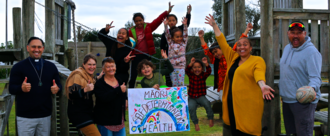

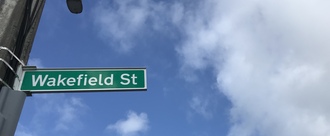

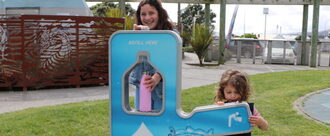
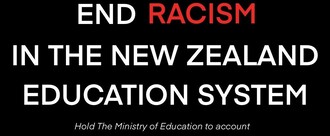.jpg)
